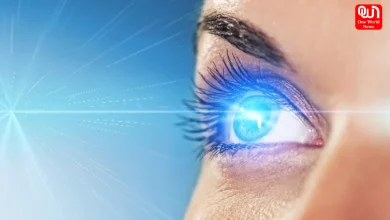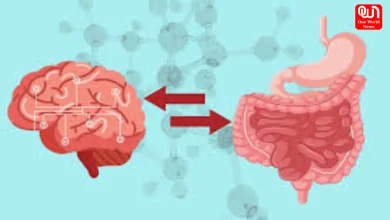Can sleep problems lead to poor mental health?
Your sleep and circadian troubles can cause poor mental health!
In recent years, an increasing body of research has shed light on the intricate relationship between sleep, circadian rhythms, and mental health.
From depression to anxiety disorders, emerging evidence suggests that disruptions in sleep patterns and circadian rhythms can significantly impact psychological well-being. A new wave of research is providing valuable insights into the mechanisms underlying this connection, offering hope for improved interventions and treatments. Let’s delve into the latest findings and explore the implications for mental health care.
The Role of Circadian Rhythms:
Our bodies operate on a 24-hour internal clock known as the circadian rhythm, regulating various physiological processes, including sleep-wake cycles, hormone secretion, and metabolism. Disruptions to this internal clock, such as irregular sleep schedules or shift work, can disturb the delicate balance of biological functions, contributing to mental health problems.
Impact on Mood Disorders:
Studies have consistently linked disturbances in sleep patterns and circadian rhythms with mood disorders such as depression and bipolar disorder. Research suggests that individuals with irregular sleep schedules or delayed sleep phases may be at higher risk of developing depressive symptoms. Similarly, disruptions to circadian rhythms have been implicated in the onset and severity of mood disorders.
We’re now on WhatsApp. Click to join.
Anxiety and Stress Response:
Sleep plays a crucial role in regulating emotions and stress responses. Sleep deprivation and circadian rhythm disruptions can impair the brain’s ability to regulate emotions effectively, leading to heightened anxiety and increased susceptibility to stress. Chronic sleep problems may exacerbate existing anxiety disorders or contribute to the development of anxiety-related symptoms.
Read more:- Study Finds Having More Siblings May Lead to Poorer Mental Health
Biological Mechanisms:
Neurobiological studies have begun to unravel the underlying mechanisms linking sleep disturbances with poor mental health outcomes. Disruptions to circadian rhythms can dysregulate key neurotransmitters and hormones involved in mood regulation, such as serotonin and cortisol. These alterations in brain chemistry may contribute to the pathophysiology of mood and anxiety disorders.
Bidirectional Relationship:
Importantly, the relationship between sleep, circadian rhythms, and mental health appears to be bidirectional, with each factor influencing the other in a complex interplay. While sleep disturbances can exacerbate psychiatric symptoms, mental health disorders themselves can disrupt sleep patterns and circadian rhythms, creating a vicious cycle that perpetuates poor well-being.
Implications for Treatment:
Recognizing the intimate link between sleep and mental health opens new avenues for therapeutic interventions. Incorporating sleep-focused interventions, such as cognitive-behavioral therapy for insomnia (CBT-I) or light therapy for circadian rhythm disorders, into mental health treatment plans may enhance overall outcomes and symptom management. Targeting sleep disturbances early in the course of psychiatric disorders could also potentially prevent the escalation of symptoms and improve long-term prognosis.
Read more:- How to support a friend with mental health issues?
Public Health Implications:
Addressing sleep and circadian rhythm problems is not only crucial for individual mental health but also holds broader public health significance. By raising awareness of the importance of healthy sleep habits and implementing policies that support sleep hygiene, healthcare systems can mitigate the burden of mental illness and improve population-level well-being.
The latest research underscores the profound impact of sleep and circadian rhythm disruptions on mental health outcomes. From mood disorders to anxiety and stress-related conditions, disturbances in sleep patterns can significantly influence psychological well-being. By unraveling the underlying mechanisms and exploring novel treatment approaches, researchers are paving the way for more effective interventions and improved mental health care strategies. Embracing a holistic approach that considers the intricate interplay between sleep, circadian rhythms, and mental health is essential for promoting resilience and well-being in individuals and communities alike.
Like this post?
Register at One World News to never miss out on videos, celeb interviews, and best reads.







